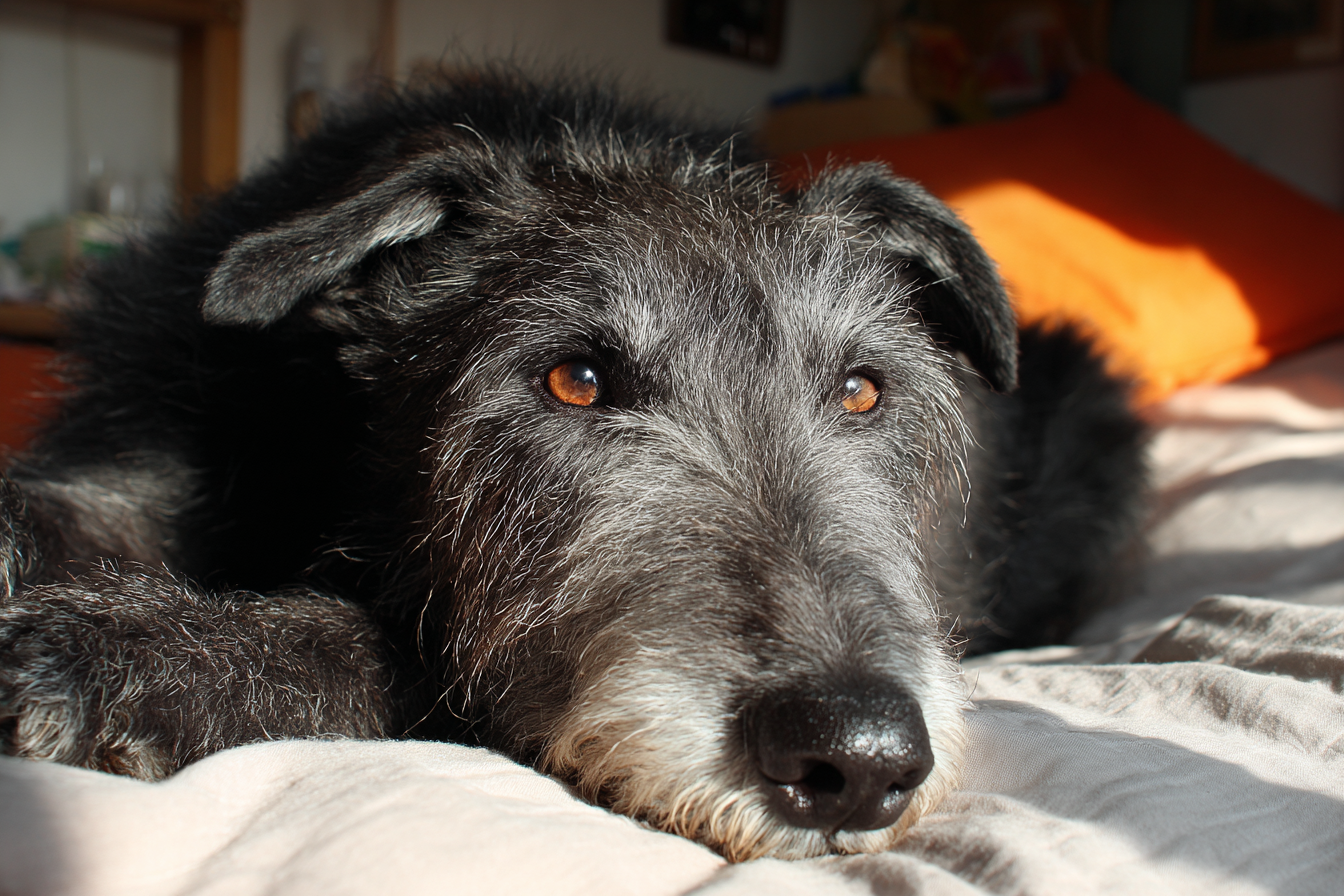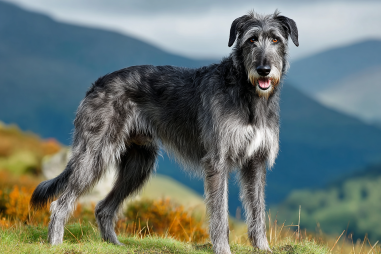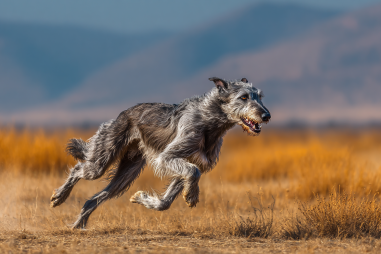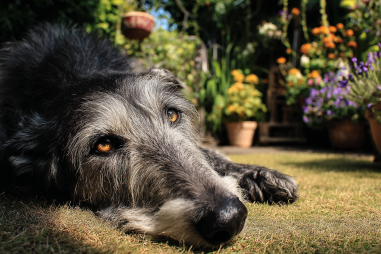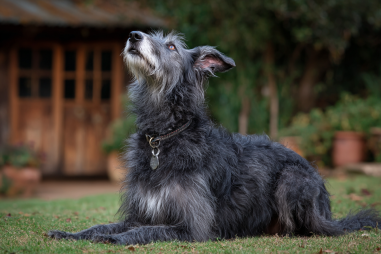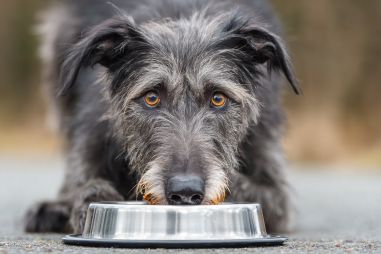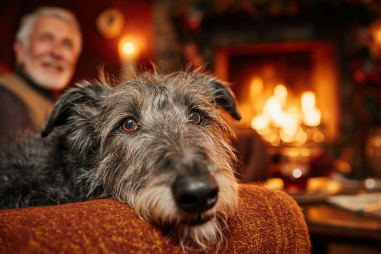As your Scottish Deerhound moves into their senior years, their needs and care routines require thoughtful adjustments. These gentle giants, known for their dignified demeanor and graceful presence, still thrive with the right support during aging. Understanding how to recognize their changes, tweak their diet and exercise, manage joint health, and ensure a safe, comfortable environment can help prolong their happiness and well-being. In this guide, we’ll explore practical senior care advice tailored specifically for your aging Scottish Deerhound.
Recognizing the Signs of Aging
Just like humans, dogs show subtle and sometimes obvious signs as they grow older. Recognizing these signs early allows you to adapt your care approach to meet your senior Scottish Deerhound’s evolving needs. Common indicators of aging in Deerhounds include decreased energy levels, graying around the muzzle, and changes in behavior such as increased irritability or lethargy.
You might notice your Deerhound becoming less playful or social, preferring more rest throughout the day. Their eyesight and hearing may also decline, leading to hesitancy in unfamiliar environments or less responsiveness to calls. Changes in weight—either loss or gain—can be a sign that their metabolism or appetite is shifting.
Pay close attention to your dog’s mobility and comfort. Difficulty rising, stiffness after resting, or reluctance to climb stairs can indicate emerging joint problems. Regularly observing these signs enables you to provide timely interventions that can greatly improve their quality of life.
Adjusting Diet and Exercise
As your Scottish Deerhound ages, their nutritional needs and physical activity levels will change significantly. Maintaining a balanced diet tailored to senior dogs supports overall health, helps control weight, and provides necessary nutrients to support aging joints and organs.
Senior Deerhounds benefit from diets that are lower in calories but rich in high-quality protein to preserve muscle mass. Omega-3 fatty acids, antioxidants, and glucosamine supplements can support joint health and reduce inflammation. Consult your veterinarian to choose the best senior dog food or formulate homemade meals that meet these requirements.
Exercise remains important, but the intensity and duration should be adjusted to accommodate your Deerhound’s stamina and mobility. Gentle daily walks and low-impact activities, such as swimming if accessible, can provide cardiovascular benefits and mental stimulation without overexertion. Monitor your dog’s response to exercise and modify as needed, ensuring they never appear overly tired or sore afterward.
Managing Arthritis and Joint Health
Scottish Deerhounds are prone to developing arthritis and other joint issues as they age, primarily due to their large size and active lifestyle throughout their lives. Proactively managing joint health can significantly improve your senior dog’s comfort and mobility.
Regular low-impact exercise helps keep joints supple, but it is often necessary to introduce supportive measures such as:
- Dietary supplements: Glucosamine, chondroitin, and omega-3 fatty acids can reduce joint inflammation and encourage cartilage repair.
- Medications: Non-steroidal anti-inflammatory drugs (NSAIDs) prescribed by your vet can alleviate pain and inflammation associated with arthritis.
- Physical therapy: Hydrotherapy or gentle massage can increase circulation and reduce stiffness.
- Weight control: Maintaining a healthy weight reduces stress on joints.
Additionally, avoid strenuous activity on hard or uneven surfaces and provide soft, supportive bedding to cushion aching joints. Early and consistent management improves mobility, helping your Deerhound enjoy a comfortable and active senior life.
Creating Safe and Comfortable Living Spaces
Your Scottish Deerhound’s home environment plays a crucial role in their comfort and safety as they age. Senior dogs often face challenges like decreased agility, vision impairment, and sensitivity to temperature changes, so thoughtful adjustments can reduce stress and prevent injuries.
Consider the following tips to create a senior-friendly living space:
- Soft bedding: Provide orthopedic or memory foam beds to relieve pressure on joints and promote restful sleep.
- Non-slip flooring: Place rugs or non-slip mats on slippery surfaces to help prevent falls.
- Easy access: Use ramps or stairs for furniture or vehicles if your Deerhound enjoys them, and ensure food and water bowls are at a comfortable height.
- Quiet and calm areas: Designate a cozy, calm spot where your dog can retreat and rest without disruption.
- Temperature regulation: Older Deerhounds may get cold easily. Provide blankets, heated pads, or maintain a stable indoor temperature.”””
Regularly inspect the living area to remove obstacles or hazards and facilitate smooth movement. These adaptations make daily life easier and safer for your aging companion.
Regular Veterinary Checkups
Consistent veterinary care is critical for monitoring and maintaining your Scottish Deerhound’s health as they age. Schedule checkups at least twice a year, or more frequently if advised, so your vet can detect age-related conditions early and recommend appropriate treatments.
During these visits, your veterinarian will typically assess:
- Overall physical condition and weight
- Joint and muscle health
- Heart and lung function
- Dental health
- Kidney, liver, and thyroid function through blood tests
- Screening for cancers or other chronic diseases
Veterinary evaluations ensure that emerging problems such as arthritis, dental disease, or organ dysfunction are addressed promptly. Your vet can also provide specialized advice on diet, supplements, exercise, and medications tailored to your senior Deerhound’s needs.
Enjoying the Golden Years Together
Watching your Scottish Deerhound grow older is a bittersweet experience, but with attentive care and love, you can make their senior years deeply rewarding. By recognizing aging signs early, tailoring diet and exercise, managing joint health, creating a safe and comfortable home, and maintaining regular veterinary care, you provide your loyal companion with the best chance for a happy, active life well into their later years. Cherish each moment with your wise and gentle Deerhound as they continue to bring warmth and joy to your life.

